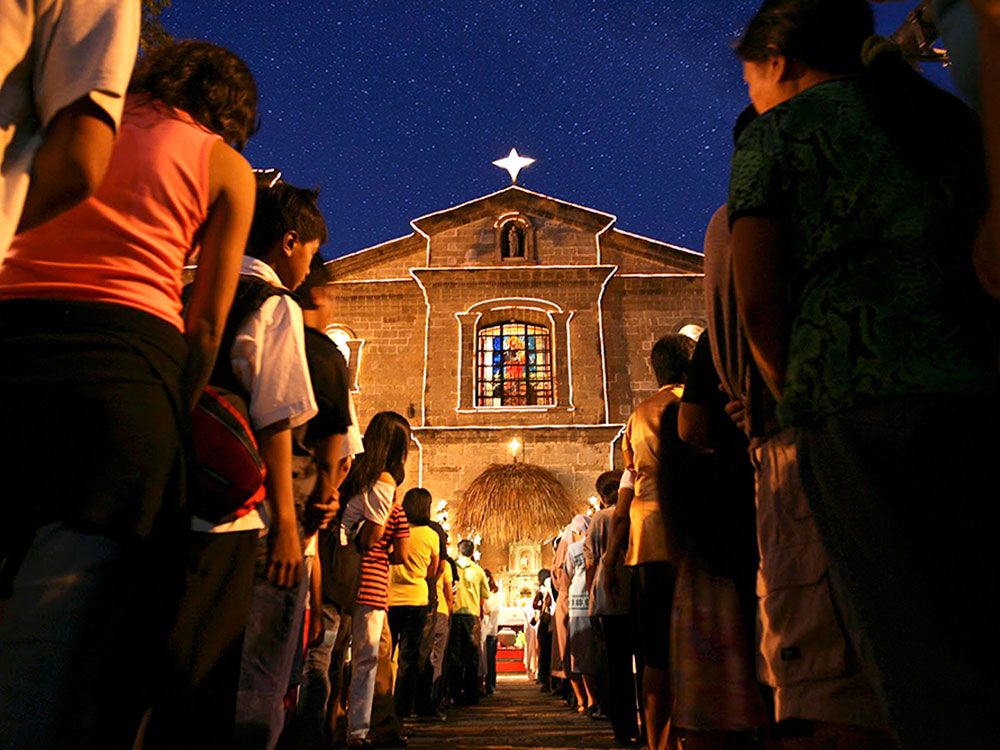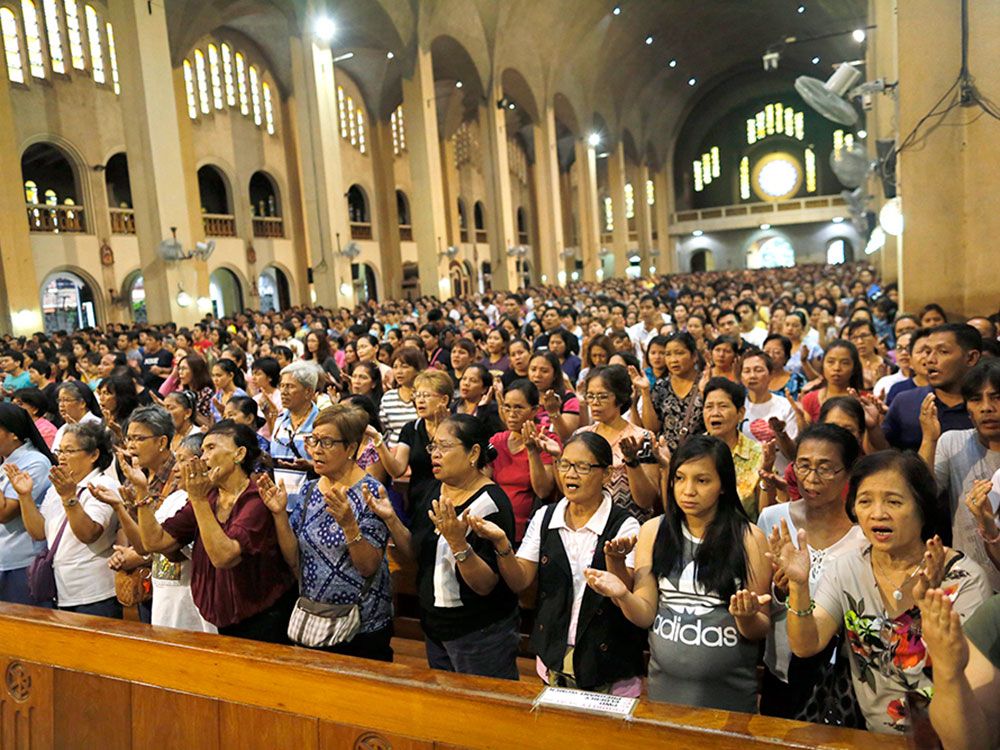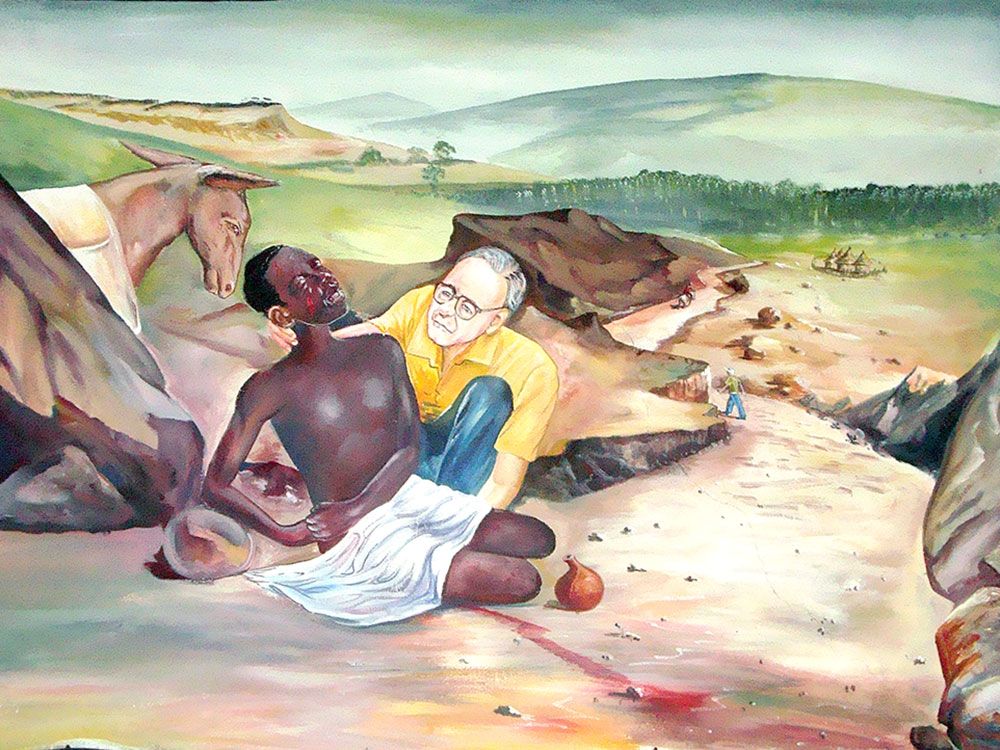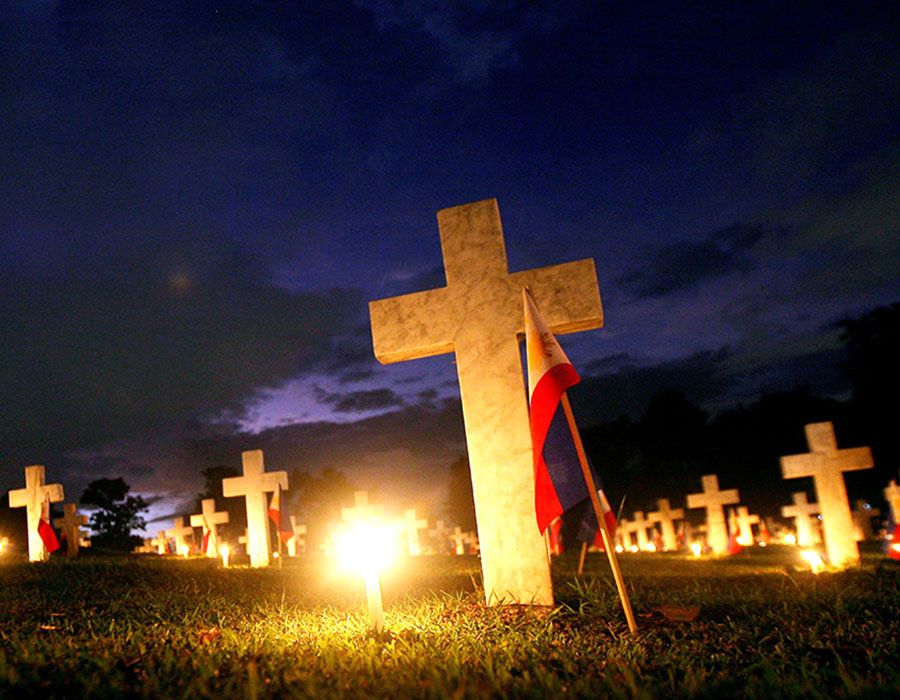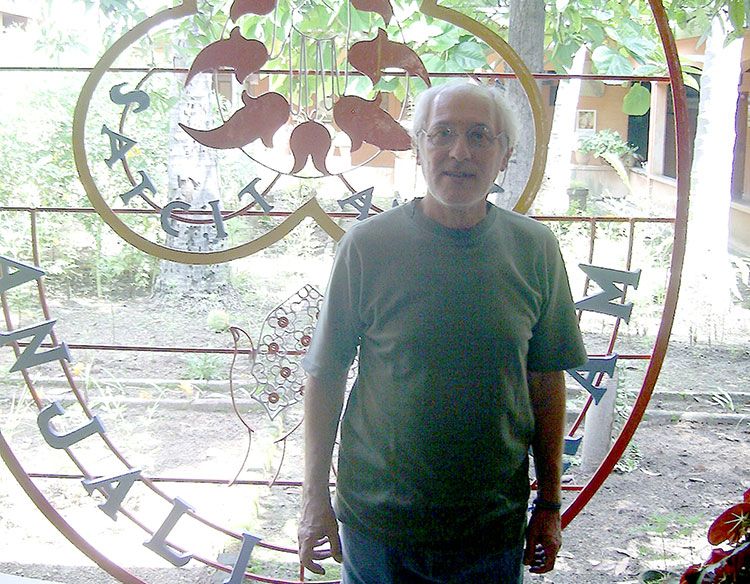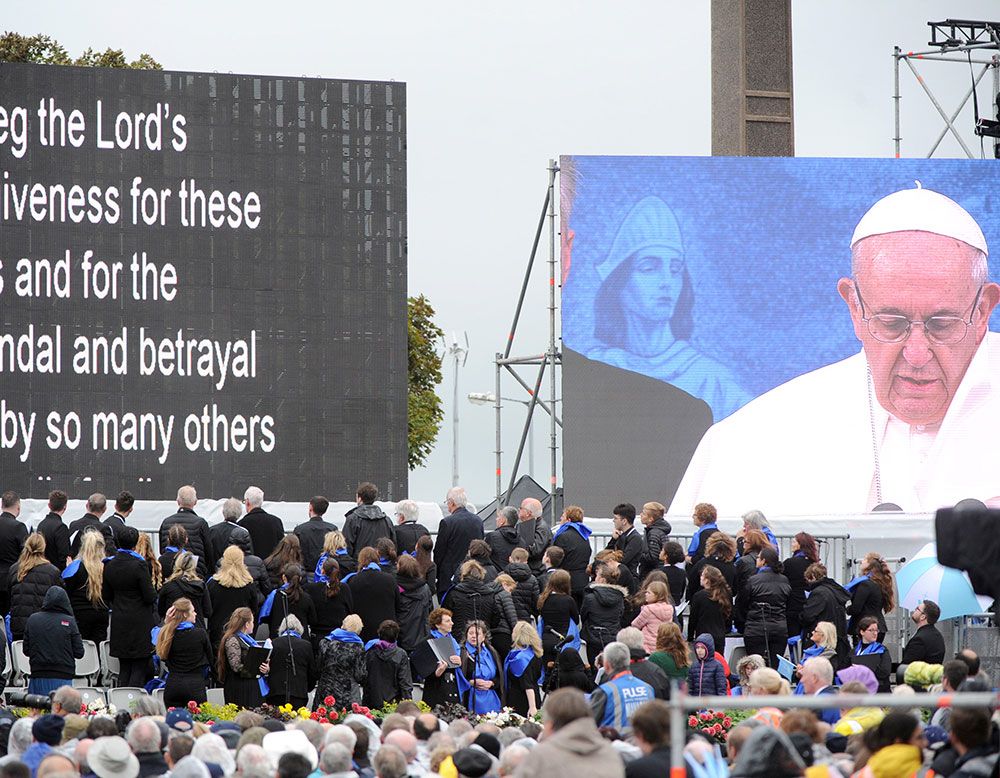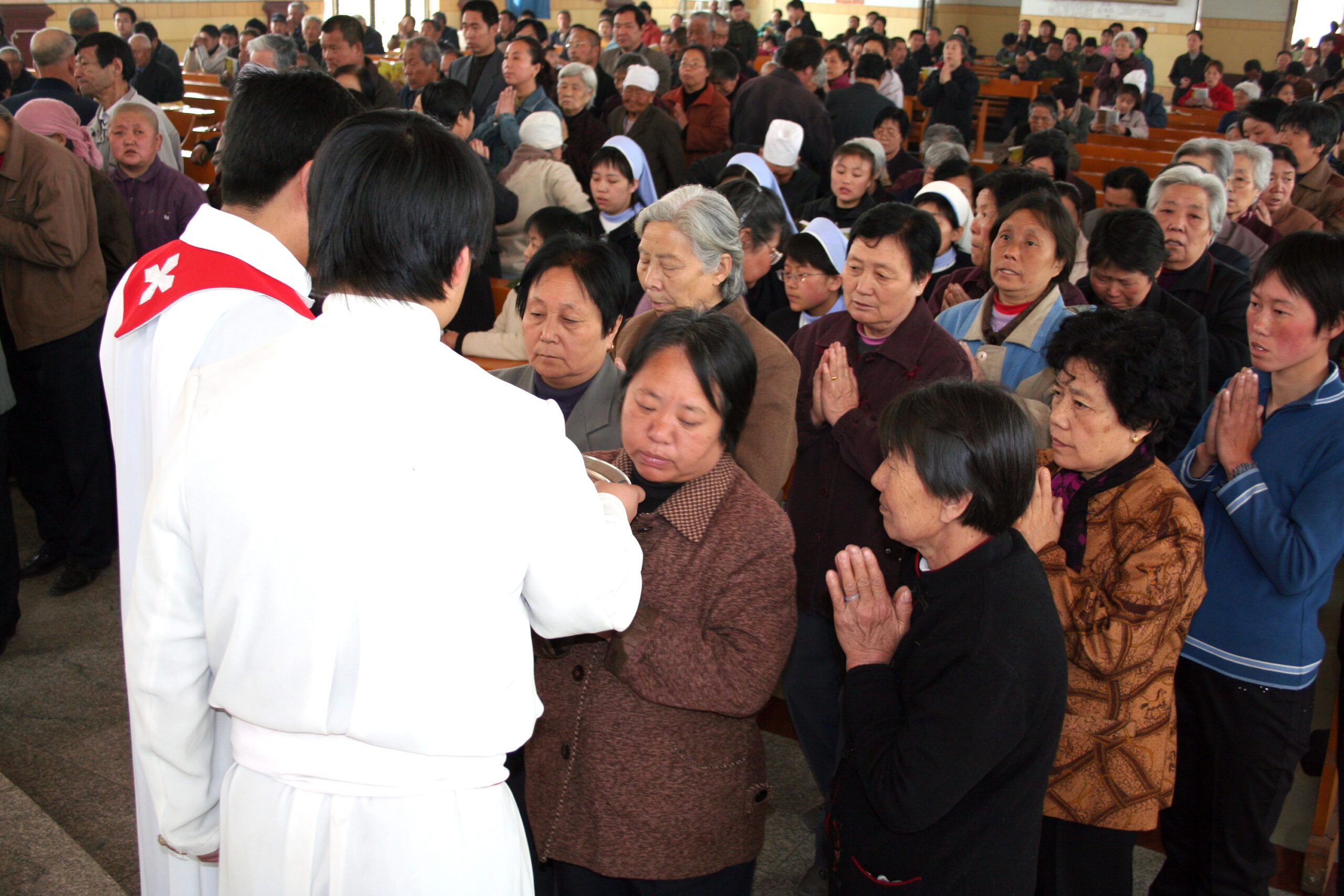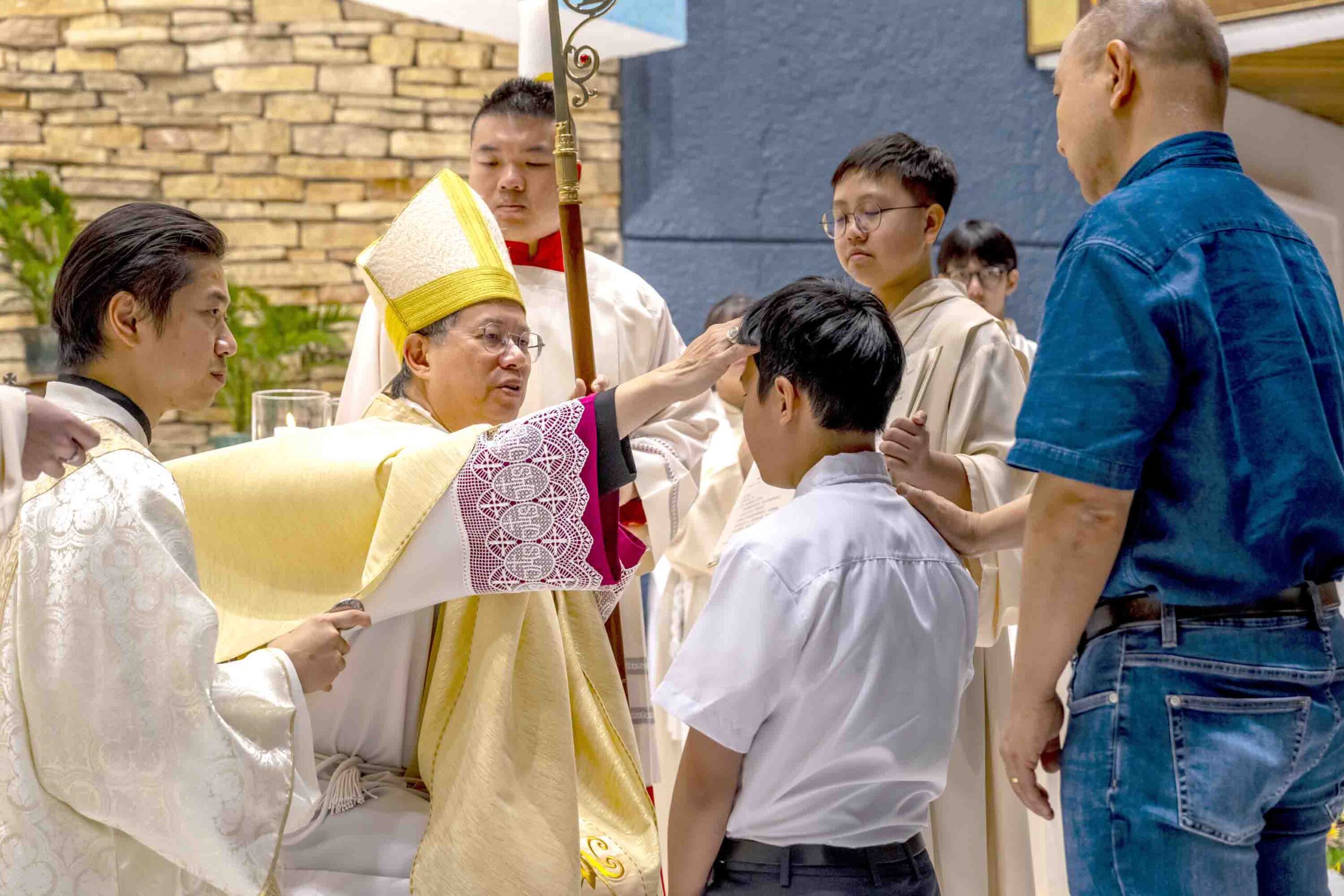Evergreens and blinking lights start to appear by September. Christmas jingles can be heard in malls by October. People start to shop and give gifts in November. By December, the entire nation is enveloped in lights and music, proof of the merriment brought about by the festivities of the birth of our Lord.
“Christmas Season is unique and special here in the Philippines because it is the longest running celebration,” J.C. Libiran, author and servant leader of the Catholic prayer meeting, The Feast in the Bay Area, said. “It begins in September, or the start of the ‘ber’ months and ends in January, during the Feast of the Three Kings.”
From September to January, Filipinos have a unique way of celebrating the birth of Our Lord, locally called Pasko. Spanish missionaries brought Catholicism to the Philippines and, even after half a century of Americanization, the Catholic local tradition still prevails and, in fact, has been given a unique brew. There is the parol, or the lantern-shaped star. There is also the belen or a tableau in the manger of the birth of the Messiah, complete with angels, the Three Kings and farm animals. However, there are more to all these than the decors.
Music in our hearts
“You hear Christmas songs being played in the malls and over the radios as people turn into panic buying during Christmas sales,” Libiran said with a smile. Not just in the Philippines, but in the whole world, music plays a big part in the seasonal celebration. Nobody can stop people from playing their favorite holiday tunes.
In the Philippines, there is a popular balladeer named Jose Mari Chan whose catalog includes some of the best loved Filipino Christmas songs such as Christmas in Our Hearts and A Perfect Christmas. In fact, as early as August, there are already memes in social media telling people to watch out as he will now have control of all the speakers. Even though Chan is not as active as before, his songs can still be heard during the holiday season as his melodies and lyrics encapsulate how Pinoys (nickname for Filipinos) view the festivities.
Still, it is not just on the radios and in malls that you hear the season’s songs. There are also the Christmas carolers. Instead of chorale companies performing in selected houses in the Philippines, there are the small groups of children who go from door-to-door. They ask for loose change while singing holiday jingles, some of which include international picks like Jingle Bells and Tagalog favorites such as Ang Pasko ay Sumapit (Christmas is Here).
Nio Calogne, a father of two and pastoral head of a Catholic prayer meeting, The Feast of Sta. Lucia, used to go from gate to gate with his friends. “When I was a child, we went caroling,’ he said.
He recalled the resourcefulness of his friends, having a makeshift instrument while caroling just like most Filipino kids do. “We had a big can, with lids removed on both sides. Then we wrapped it with a plastic and a rubber band to secure the wrap. That was it, and we had improvised drums. Then we pierced some flattened bottle caps, skewered these into a wire and we had a tambourine.”
Looking back to those caroling days with his friends, the educator and lay preacher had this to say: “We were so happy, especially afterwards, because my friends and I would compare and look who had the greater number of coins.”
Calogne was quick to note that it was not all about money, as there would be houses that would opt not to give any and say, patawad (Filipino for forgive me). “It’s all right,” he said,” as long as you are with your friends.”
One thing that prepares all of us for Christmas is Advent. In this tropical country, apart from the Advent Masses, there are also dawn and late evening Masses, called Simbang Gabi, in churches packed and overflowing with the faithful – young ones and seniors, professionals and laborers, both wide awake and drowsy. This begins on December 16, nine mornings before December 25. It is believed that whoever completes the nine days will get their wishes fulfilled.
Libiran recalls that he and his wife Emelyn, who have been married since 2011, attended these. “We also went to anticipated Night Masses (Simbang Gabi) with matching food treats such as bibingka at puto bungbong (Filipino Christmas delicacies) with tsaa (tea). You also see kids going around the neighborhood to do on-the-spot caroling as they are amazed with the lights and Christmas decorations of houses and villages.”
Historically, the Misas de Aguinaldo were offered in the darkness of dawn amid the blaze of many lighted candles, especially for farmers and workmen who had to labor afterwards. According to historical researcher Jesson Gonzaga Allerite, the Spanish word aguinaldo, which is Mozarabic in origin, means “gift” and even a “carol.” The Misas de Aguinaldo came from the original novena Masses in preparation for Christmas in honor of the Annunciation (or Expectation) of the Blessed Virgin Mary wherein churches in Spain provided food after the Mass to the needy, hence the word aguinaldo.
Family feast for all
Another Filipino Christmas tradition is the special family dinner called Noche Buena. Families normally get together for a late dinner on the 24th and wait for the clock to strike 12 midnight. The banquet is usually composed of roast pig, fruit salad, ham, queso de bola and other favorite dishes. Children eat then play while the adults talk and banter about life and so on.
Calogne shared: “Noche Buena has been a part of my family ever since I was a kid. Wherever we spend Christmas, there will always be Noche Buena. When I was a kid, we used to spend the holidays in La Union.”
The husband of Ruby adds: “All my Noche Buenas are memorable as we are very close as a family. That is why even if it is just a simple feast, it is okay just as long as we are together.”
Now that Calogne is a father to a six-year-old son and expecting another child next year, he can only hope that his own children will have the same joy as he did, if not surpass it. “When I was a kid, I believed that Christmas was the best time of the year,” he said.
“There would be the godparents,” Calogne recalled when asked about his childhood. In the Philippines, a child is allowed more than one godmother and godfather. This is why he can expect more presents. “My own godparentes were very generous in giving me gifts like clothes and shoes. When I became a pre-teener, they often gave me cash, which was all right with me.”
The spirit of sharing
Apart from the Noche Buena, there was another thing that excited Calogne (and, hopefully in the future, his son) on the night of the 24th. “I was excited wondering what Santa Claus would put in the sock that I hanged on our window,” he said. “I slept at night with the sock still empty. In the morning, the first thing I would do was check on the sock, now full of toys and chocolates! There was one Christmas I forgot to hang a sock and that made me feel so sad.”
However, Calogne added that gifts are just an icing on the cake. “I want Fourth (my son) to see Christmas as not just a time of receiving but also a time of giving. For in giving, we empty ourselves for others to be filled up.”
“The message of Christmas is sharing,” he continued with a smile. “Sharing our being human to others. The way God shared His love by journeying with us here on earth.”
Calogne now calls the shots as to whose family to visit on Christmas Day: his or his wife’s, so that his children can bond and party with other family members. “Our Christmas celebration is on an alternate arrangement. Like last year, we had Christmas in Pasig where the parents of Ruby live. This year, we will celebrate Christmas with my family in Marikina. We deliberately do this to be ‘fair’ to both sides of the family.”
“Christmas is a celebration of life as we celebrate the birth of Jesus in a manger,” Calogne shared. “So much so, Christmas is also a celebration of love; the love of God for mankind as He Himself came to journey with us, be with us and ultimately offered His life for our sins through His death and resurrection.”
Libiran, on the other hand, shared that, for him and his wife, Christmas celebration means family gatherings and reunions: “We do our annual house visits to our beloved elderly and friends to reconnect and know how they are and, most especially, we offer the celebration of the Christmas Eve Mass for them.”
In particular, every Christmas Eve is celebrated with Libiran’s side of the family, while every New Year’s Eve is with his wife’s side. “It’s fun to eat together over a food galore – potluck style. We tell stories, we sing with the use of videoke, and we have games and gift giving.”
Libiran continued: “We look forward to the years to come still full of celebration of life and love. Life is truly all about relationships, nurturing them not only with our family members and friends but also expanding them to a wider circle that includes Church and community members. We want our marriage and family to be a reflection of God’s love and blessings.”
A new child on the way
Libiran, who is expecting his first child this month, has this to share. “My wife and I are excited and truly thankful for this amazing blessing – having our first child this coming Christmas. Praise be to God for the gift of life. We will be celebrating this milestone in the company of our family, friends and loved ones, most especially as we remember the many great things and blessings that God has allowed us to experience this year.”
Having come from a small brood of three (the same is true of his wife), he shared that he wants to have a big family. The soon-to-be father said: “We see ourselves having also two to three children but who knows God may want to bless us with more!”
Calogne is also expecting another child next year. Both Libiran and Calogne will be receiving the best Christmas gift ever for them – a bundle of joy, a little angel – a child! The blessings that these two fathers will be receiving this Christmas Season rightfully highlight its theme: the family.
Filipino family’s togetherness
“The best way Filipinos celebrate Christmas is being with their family,” Calogne said. The simpler the celebration the better – simple food, simple gifts, simple decorations. After all, I believe one message of Christmas is about simplicity as the Baby we are celebrating on this day was born in a very simple manger in Bethlehem.”
For Calogne, there are some things that outweigh the value of food that has been prepared and the gifst that have been bought. These are the warm embrace, the smiles and laughter, and the stories shared which make the celebration more meaningful and memorable. “Just the thought of being with the family during the Christmas season is more than enough for this wonderful time of the year,” he said.
Truly, more imp0rtant than the Christmas carols being sung, the puto bumbong and bibingka shared during the early mornings, and the gifts received from parents and godparents, is this family togetherness that makes our Christmas special because, with the family, we feel God’s love magnified.

